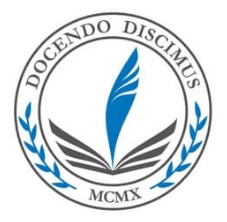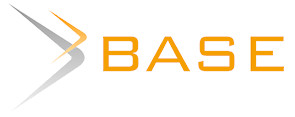Please use this identifier to cite or link to this item:
https://rep.vsu.by/handle/123456789/13259Full metadata record
| DC Field | Value | Language |
|---|---|---|
| dc.contributor.author | Kedzierska, G. | - |
| dc.contributor.author | Kotowska, M. | - |
| dc.date.accessioned | 2018-02-13T06:07:02Z | - |
| dc.date.available | 2018-02-13T06:07:02Z | - |
| dc.date.issued | 2017 | - |
| dc.identifier.citation | Психологический Vademecum: Психологические предикторы индивидуального развития личности в условиях образовательной среды : сборник научных статей. – Витебск : ВГУ имени П. М. Машерова, 2017. – С. 205-212. – Библиогр.: с. 212 (27 назв.).- | ru_RU |
| dc.identifier.isbn | 978-985-517-641-2 | - |
| dc.identifier.uri | https://rep.vsu.by/handle/123456789/13259 | - |
| dc.description.abstract | Рассмотрена индивидуальная агрессия в организованной уголовной группе=Each year in Poland law enforcement agencies detain more than a thousand people suspected of organized crime. The emergence and development of organized crime groups is driven by psychological factors such as personality and temperament, learning processes, mental development, and aggression. Aggression in the activities of organized criminal groups has until recently been the basis for their functioning and the basis for the recruitment of individuals into the group. Today, there are clearly distinct differences in the characteristics of individuals predisposing it to participation in a criminal group. The decisive elements are: social relationships, professional relationships, leisure activities and specific life events of the individual. Organized crime groups create collectivity based on synergies and interactions, based on norms that result from the pursuit of a specific goal that can only be achieved by the selection of the right human beings. The phenomenon of organized crime is its sustainable development due to the ability to adapt to the current environment in which it operates. Organized crime structures strictly adhere to the rules and principles of operation when recruiting the appropriate units, then maintaining them in discipline and loyalty to the group, as well as in the conspiracy of activities and the security of the group. | ru_RU |
| dc.language.iso | en | ru_RU |
| dc.publisher | Витебск : ВГУ имени П.М. Машерова | ru_RU |
| dc.subject | Польша | ru_RU |
| dc.subject | агрессия | ru_RU |
| dc.subject | уголовные группы | ru_RU |
| dc.subject | индивидумы | ru_RU |
| dc.subject | psychological factors of men | ru_RU |
| dc.subject | aggression | ru_RU |
| dc.subject | aggressive behavior of minors | ru_RU |
| dc.subject | organized crime | ru_RU |
| dc.subject | organized criminal group | ru_RU |
| dc.title | Agresja jednostki jako czynnik rekrutacji do zorganizowanej grupy przestepczej | ru_RU |
| dc.title.alternative | AGGRESSION OF THE INDIVIDUAL AS A RECRUITMENT FACTOR TO AN ORGANIZED CRIMINAL GROUP | ru_RU |
| dc.type | Article | ru_RU |
| Appears in Collections: | Психологический Vademecum: Психологические предикторы индивидуального развития личности в условиях образовательной среды : сборник научных статей. – Витебск : ВГУ имени П. М. Машерова, 2017. – 226, [1] с. | |
Files in This Item:
| File | Description | Size | Format | |
|---|---|---|---|---|
| 204-212.pdf | 688.09 kB | Adobe PDF | View/Open |
Items in DSpace are protected by copyright, with all rights reserved, unless otherwise indicated.
Ресурсы наших партнёров:
Репозиторий Белорусского национального технического университета
Электронная библиотека Белорусского государственного университета
Электронная библиотека Гомельского государственного технического университета имени П.О.Сухого
Электронный архив библиотеки МГУ имени А.А. Кулешова
Репозиторий Полесского государственного университета
Электронная библиотека Полоцкого государственного университета
Научный репозиторий Могилевского института МВД Республики Беларусь









